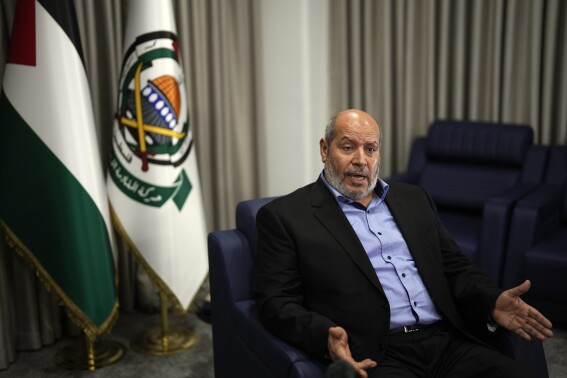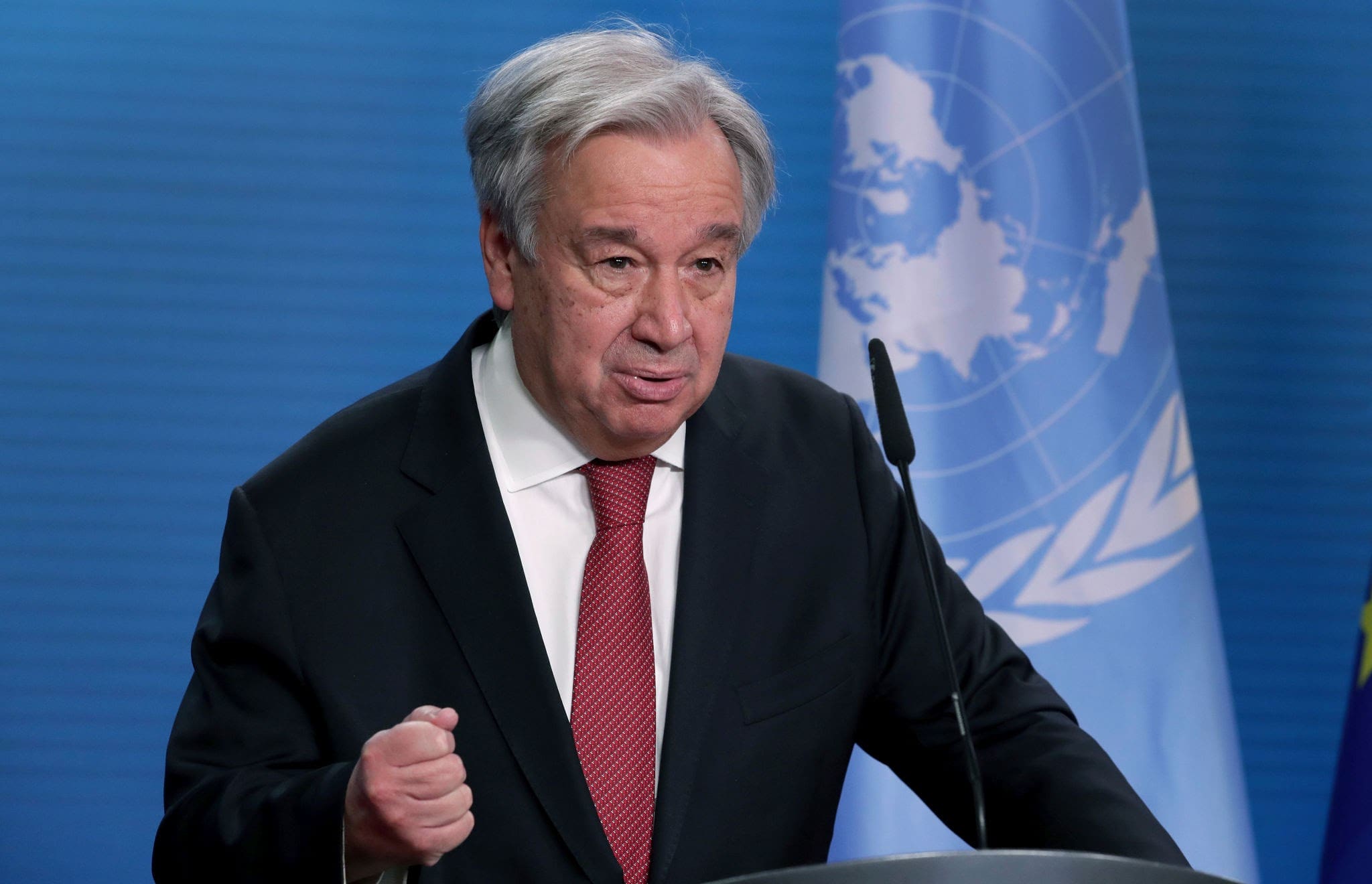The International Criminal Court (ICC) has become a sham of its original mission, thanks to its current prosecutor, Karim Ahmad Khan. Under Khan’s watch, the ICC has abandoned justice and accountability to become a political tool for enabling terror. Instead of targeting mass murderers and genocidal regimes, Khan has made it his personal mission to go after Israel—a democracy fighting for its survival against terrorists like Hamas. Who is Karim Ahmad Khan, and why is his leadership such a disgrace? Let’s break it down.
The man leading the ICC is a figure surrounded by scandal and questions of integrity. Karim Ahmad Khan is not an impartial enforcer of justice; he’s a man whose actions and associations scream bias, failure, and collusion with terrorists.
1. His Religious Bias Is Clear
Khan, a Pakistani Muslim from the UK, reportedly quotes the Quran in all his public speeches. Let’s be real—justice doesn’t need religious sermons. The ICC is supposed to enforce international law, not allow a prosecutor’s personal faith to dictate the agenda. Yet Khan makes no attempt to hide his priorities, and those priorities clearly do not include the safety or survival of the Jewish people.
2. Family of Scandals
Khan’s brother is a convicted sex offender, and while that’s not directly tied to Karim, it raises the question: is this a family that can be trusted with something as serious as international justice?
3. Sexual Misconduct Allegations
If you thought his family history was bad, Karim himself has faced allegations of sexual misconduct. How does a man accused of such behavior get to sit at the top of an institution meant to uphold justice? Where’s the accountability?
A Career Built on Defending War Criminals
Before assuming his position as the chief prosecutor of the ICC, Karim Ahmad Khan’s career was defined by his controversial choice of clients and the morally questionable cases he chose to defend. While every individual has a legal right to representation, Khan’s decision to act as defense counsel for some of the most notorious figures accused of heinous crimes against humanity raises serious concerns about his commitment to the principles of justice and accountability.
One of the most infamous cases in Khan’s legal career was his defense of William Ruto, the Vice President of Kenya, who was accused of orchestrating mass violence following the country’s 2007–2008 elections. The violence, which erupted along ethnic lines, resulted in the deaths of 1,200 people and the displacement of over 600,000 individuals, leaving entire communities in ruins. Ruto was charged with crimes against humanity, including murder, persecution, and the forcible transfer of populations—charges that strike at the core of the ICC’s mandate to address the gravest violations of international law.
In court, Khan worked aggressively to discredit witnesses and question the credibility of evidence, a tactic that ultimately led to the collapse of the case due to allegations of witness tampering and intimidation. Critics argue that the trial’s failure was less a matter of Ruto’s innocence and more a reflection of the systemic interference that made it impossible for justice to prevail. The collapse of the case not only denied closure to the victims of Kenya’s post-election violence but also raised questions about Khan’s methods and the lengths he was willing to go to defend his client.
While it is true that lawyers are bound to represent their clients to the best of their ability, there is a stark difference between upholding the legal system and actively participating in undermining justice. Ruto’s case was not an isolated instance. Over the years, Khan has built a reputation for defending high-profile individuals accused of grave crimes, many of whom were implicated in mass killings, ethnic cleansing, and systemic oppression. This pattern of representation begs the question: How does a man who has spent much of his career defending alleged war criminals suddenly position himself as the world’s leading enforcer of justice at the ICC?
The conflict of interest becomes even more glaring when considering the selectivity with which Khan, as ICC prosecutor, now pursues cases. His tenure has been marked by a disproportionate focus on Israel—accusing its leaders of “war crimes” while ignoring the atrocities committed by authoritarian regimes and terror groups worldwide. This selective application of justice stands in stark contrast to the principles the ICC was founded upon and raises concerns about whether Khan’s actions are guided by justice or political motivations.
Moreover, his work defending individuals accused of atrocities against humanity has led many to question his ability to empathize with victims of such crimes. How does someone who built a career representing individuals accused of organizing mass murder reconcile that history with the responsibility of seeking justice for those very same victims? The answer, for many, is that Khan’s tenure at the ICC has been less about justice and more about pursuing a personal and political agenda that undermines the court’s credibility.
Far from being a neutral figure in the pursuit of accountability, Karim Ahmad Khan’s career trajectory reveals a troubling inconsistency: a man who once stood alongside alleged perpetrators of violence now claims to act as the voice for their victims. The result is a crisis of confidence in the ICC’s ability to fulfill its mandate under his leadership. Instead of restoring faith in international justice, Khan has only deepened doubts about the court’s impartiality and effectiveness.
In the case of William Ruto, Khan’s legal defense may have helped his client evade accountability, but it left a scar on Kenya’s justice system and denied the victims of post-election violence the closure they deserved. This episode—and others like it—raise a fundamental question: Can a man who has repeatedly prioritized the interests of the powerful over the rights of the powerless truly lead an institution tasked with upholding justice on behalf of the world’s most vulnerable? So far, Khan’s record at the ICC offers little reason for optimism.
The ICC/un Has No Credibility
Khan’s selective prosecutions and reliance on Hamas propaganda reveal his true colors. By targeting Israel while ignoring mass atrocities worldwide, he has shown himself to be a terrorist enabler who uses the ICC to legitimize Hamas’s genocidal campaign against the Jewish people.
Even his appointment reeks of bias. Khan was backed by UN Secretary-General António Guterres, another figure notorious for his anti-Israel stance. Together, they’ve turned the ICC into a weapon for demonizing Israel rather than upholding justice.
Under Karim Ahmad Khan, the ICC has become a farce. Its focus on Israel is not about justice—it’s about politics, propaganda, and enabling terrorism. By targeting a democracy defending itself against genocidal threats, the ICC has betrayed its mission and become complicit in Hamas’s war crimes.
The world must reject this disgraceful institution and call out Karim Ahmad Khan for what he is: a biased, incompetent prosecutor who has turned the ICC into a tool for terror. Justice demands better. The victims of Hamas’s atrocities deserve better. And Israel, like every nation, has the right to defend itself without fear of persecution from a corrupt international body.
The ICC under Khan? A disgrace to humanity.






